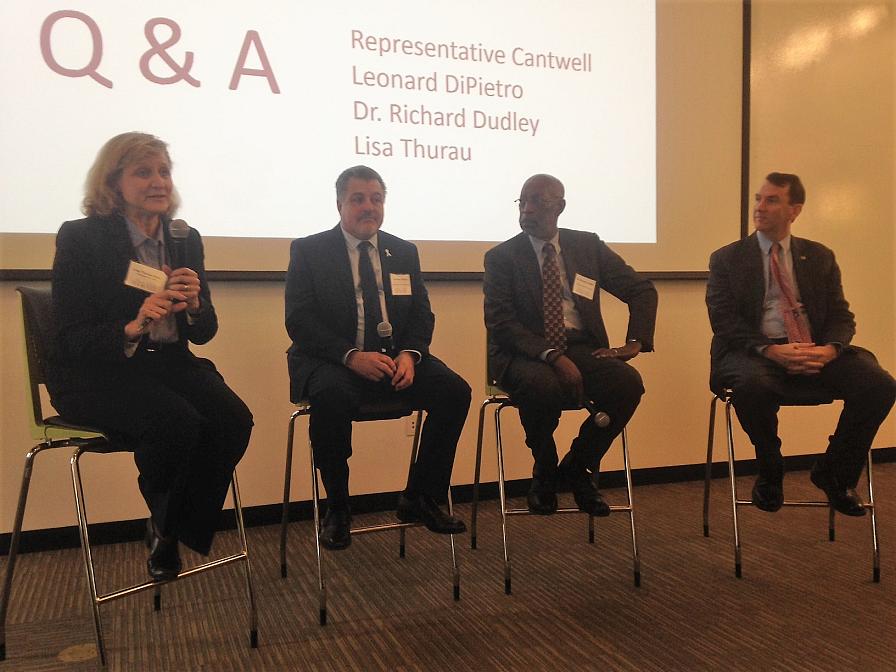
Lisa Thurau, Lenny DiPietro, Dr. Richard Dudley, and Representative James Cantwell at the March 1 Social Issue Talk
Congratulations to our 2026 Social Innovators!

Lisa Thurau, Lenny DiPietro, Dr. Richard Dudley, and Representative James Cantwell at the March 1 Social Issue Talk
On Thursday, March 1, I participated in a terrific Social Issue Talk sponsored by the Social Innovation Forum entitled “Breaking the Cycle of Youth Incarceration by Increasing Equitable and Appropriate Policing.” Our goal for this lunchtime presentation was to convey (1) how exposure to trauma can push vulnerable young people into the justice system unnecessarily, and (2) how police can use our growing awareness of the behavioral effects of trauma on youth to create networks of support instead of punishment.
...early exposure to trauma and violence can make young people fearful, constantly on edge and sensing danger where it may not exist.
This is the mission of the organization I founded in 2010, Strategies for Youth (SFY), a current SIF Social Innovator. Over the years, SFY has been extremely fortunate to partner with the extraordinary individuals who joined me on the panel. Dr. Richard Dudley, a renowned and experienced psychiatrist, explained with disarming clarity how early exposure to trauma and violence can make young people fearful, constantly on edge and sensing danger where it may not exist. This then leads to behaviors, such as “fight or flight” that can land them in trouble at school and with police.
Lenny DiPietro, Deputy Superintendent of the Cambridge Police, discussed how equipping police officers with this knowledge can help them to define their role as a resource for vulnerable youth, committed to keeping them out of, rather than pushing them into, the justice system. Representative James Cantwell of the Massachusetts State Legislature described how legislation he is pushing in the state legislature can aid in this effort by enacting and funding training and standards for developmentally-appropriate, equitable policing of youth.
As the last speaker on the panel, I was fortunate to pull these pieces together to talk about SFY’s role as a bridge between the research and the practice. Of course, by then, my job was easy. Dr. Dudley, Deputy DiPietro, and Representative Cantwell all made the process sound so natural, as if it was little more than common sense. How, I wondered as I listened to them, could this not be the norm?
Of course we know that Cambridge’s approach to policing is the exception, and not the rule, and that achieving a widespread adoption of this approach to policing youth will be a steep climb. There are plenty of days when I experience setbacks and feel discouraged.
This forum made me hopeful about what is possible when professionals of good faith determine to work together to make the world a safer and better place for our most vulnerable youth.
But March 1 was not one of them. Officers from the MBTA Transit Police were in attendance, along with the Cambridge Police Department, cheering SFY on in recognition of how we have helped their departments. Mary McFadden and Larry Stifler, funders of the track, were there to listen and continue to understand the complexities of the issue and how police/youth interactions can truly help to break the cycle of incarceration. These issues are so important right now, as everyone looks at challenges from Parkland, Florida and tries to determine how to move forward. The audience was diverse and intensely interested—questions ended at 1:30 with 12 hands still up in the air.
The event buoyed Team SFY and left us feeling profoundly grateful to these dedicated public servants whom I have had the great privilege of working with these past eight years. This forum made me hopeful about what is possible when professionals of good faith determine to work together to make the world a safer and better place for our most vulnerable youth.